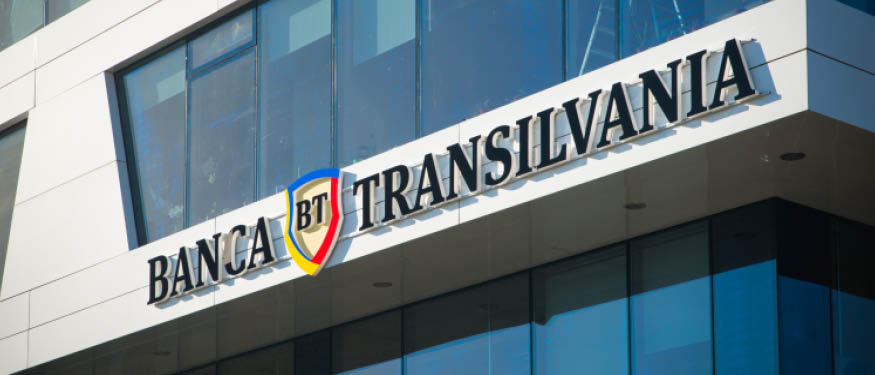In the era of digital technology, it is natural to contemplate the potential effects of the digital revolution on various aspects of life. Generative AI, although still in its development stage, is already causing the anticipated revolution in the markets. Generative AI is beginning to revolutionize the delivery of services and products and has already made significant strides in transforming how markets operate. It is not yet clear whether generative AI will cause competition law issues; however, based on experience with digital revolutions, it is worth noting that a few scenarios are possible that will disrupt the current competition law framework everywhere, including in North Macedonia.
Clifford Chance Advises on Refinancing and Recapitalization of KKCG Group's Technology Pillar
Clifford Chance has advised KKCG Group's Technology pillar on the complete refinancing of its existing bank indebtedness and the further recapitalization of its members, including those in Bulgaria, North Macedonia, Poland, and Serbia.
North Macedonia's Surprisingly Busy Summer: A Buzz Interview with Svetlana Trendova of Apostolska Aleksandrovski & Partners
The summer slowdown in North Macedonia has not dented interest in the energy sector, with several renewable energy initiatives on the docket, while a new law on expert findings and data protection fines are making a splash, according to Apostolska Aleksandrovski & Partners Partner Svetlana Trendova.
Personal Bankruptcy Reimagined: A Fresh Start for North Macedonia's Debtors
In the realm of legal matters in the Republic of North Macedonia, the concept of "bankruptcy for individuals" that exists in Western countries is completely unknown. Here, a person burdened with debt could find themselves perpetually trapped, facing an ever-growing debt that seems impossible to escape.
Invitation for Prequalification for Construction of Sub-Section of the Skopje-Blace Motorway in North Macedonia
The Public Enterprise for State Roads of North Macedonia (“PESR”) published an invitation for prequalification (“Invitation for Prequalification”) for works for the construction of a 10.5 km long sub–section of the TEN-T Route 6 Motorway (“Project”).
ODI Law Advises on Sale of Macedonian Supermarket Chain Kit-Go
ODI Law has advised the owner of Macedonian supermarket chain Kit-Go on its sale to Kosovo-based company Viva Fresh. The Zeqiri Law Office reportedly advised Viva Fresh.
Lalicic & Boskoski Advises Mr. Bricolage on New Lease from Tinex in Skopje
The Lalicic & Boskoski Law Office has advised Mr. Bricolage on relocating its business premises in Skopje across the street from its former location through a lease agreement with landlord Tinex.
ODI Law and Karanovic & Partners Advise on Makedonski Telekom's Insourcing of 150 Ericsson Employees
ODI Law has advised Makedonski Telekom Skopje on insourcing 150 employees from the Macedonian subsidiary of Ericsson. Karanovic & Partners advised Ericsson.
North Macedonia: Conversion of Third-Party Loans into Share Capital Contributions in Trade Companies
Before the introduction of the latest amendments to the Company Law of the Republic of North Macedonia (Company Law) on April 29, 2022, it stipulated that only loans provided by sole shareholders to their companies may be converted into share capital. The practice of conversion overseen by the Central Registry of North Macedonia (CRM) was strict. For example, loans taken over by the shareholder from the companies of the same group were considered ineligible for conversion.
North Macedonia: Investment Opportunities in the Real Estate Market
The Macedonian real estate market reached its greatest growth and development in the last ten years. As a result of the increased investments in the real estate market, the legislation that regulates the respective matter is constantly changing to meet the amended conditions resulting from the growth, so we can see simplified procedures for obtaining building permits and simplified procedures for the transfer of ownership rights.
Infrastructure, Energy, and Investments Fortify North Macedonia: A Buzz Interview with Veton Qoku of Karanovic & Partners
A significant number of landmark energy and infrastructure projects are currently materializing in North Macedonia, with foreign direct investment interest constantly growing as well, according to Veton Qoku, Partner and Attorney-at-Law in cooperation with Karanovic & Partners.
Transforming Transportation: Tender Published for New Railway Section Construction in North Macedonia
The Public Enterprise for Railway Infrastructure Railways of the Republic of North Macedonia – Skopje has published a contract notice for project implementation support and safeguard services for the construction of a new railway section from Kriva Palanka to the border with the Republic of Bulgaria (“Project”). The 24 km section is the last part – the third phase of the railway Corridor VIII to the Republic of Bulgaria.
White Collar Crime Laws and Regulations in North Macedonia
Contributed by Law Office Emil Miftari.
Real Estate Laws and Regulations in North Macedonia
Contributed by Polenak.
Competition and Competition Litigation Laws and Regulations in North Macedonia
Contributed by ODI Law.
Capital Markets in North Macedonia
Contributed by ODI Law.
CEELM Covid-19 Comparative Legal Guide: Contracts in North Macedonia
Contributed by Knezovic & Associates, member of Adriala
Market Makers
The commercial legal markets of Central & Eastern Europe didn’t appear automatically. They didn’t develop in a vacuum. They were formed, shaped, and led, by lawyers – visionary, hard-working, commercially-minded, and client-focused individuals pulling the development of CEE’s legal markets along behind them as they labored relentlessly for their clients, their careers, their futures.
































